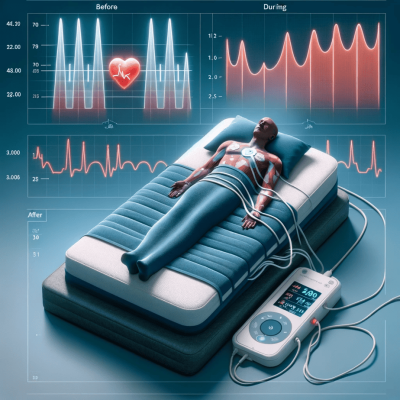Medical misdiagnosis is a serious issue. It can result in the wrong treatment plan, or no treatment at all, which can have devastating consequences for patients. If you believe that you may have been misdiagnosed, it’s important to take action and contact the right people. In this article, we will discuss who to contact if you suspect that you have been misdiagnosed. We will also provide some tips on how to make sure that your case is taken seriously.

Table of Contents
Toggle1) Call a Lawyer
If you believe that you have been misdiagnosed by your doctor, the first thing you should do is contact a lawyer. A lawyer can help you file a medical malpractice lawsuit and get the compensation that you deserve. In order to be successful with a medical malpractice lawsuit, you will need to prove that the doctor’s negligence caused harm to you or resulted in death. This can be difficult to do without the help of an experienced lawyer. According to this Philadelphia based stroke lawyer, “Medical malpractice cases are complex and expensive to litigate. You need an experienced lawyer who specializes in this area of law and has the resources to take on the insurance companies.”
2) Contact the Medical Board
If you believe that you have been misdiagnosed by your doctor, one of the best things you can do is contact the medical board. The medical board is responsible for investigating allegations of malpractice and improper conduct by doctors. If they find that the doctor was negligent in their diagnosis or treatment of you, they may take disciplinary action against them. This could include anything from a warning letter to the revocation of their license.
In order to contact the medical board, you will need to provide them with some information about yourself and your case. You will need to provide your name, address, phone number, and date of birth. You will also need to provide information about the doctor who misdiagnosed you, including their name, address, phone number, and medical license number. Finally, you will need to provide information about the alleged misdiagnosis itself, including when it occurred and what type of harm it caused.
The medical board will review your case and determine if an investigation is warranted. If they decide that there is enough evidence to suggest that the doctor was negligent in their diagnosis or treatment of you, they may open an investigation. During the course of the investigation, they may interview witnesses or request documentation from both parties involved. They may also request a hearing, during which both parties will have the opportunity to present their case.

3) Contact the Hospital
If you were misdiagnosed at a hospital, you should contact the hospital’s administration. The hospital may be held liable if the doctor who misdiagnosed you was an employee of the hospital or was working under the supervision of the hospital.
In order to contact the hospital, you should gather all medical records and evidence related to your case, write a letter addressed to the hospital’s administrator detailing your claim, and send the letter and supporting evidence to the hospital via certified mail with the return receipt requested. The hospital will review your case and determine if an investigation is warranted. If they decide that there is enough evidence to suggest that the doctor was negligent in their diagnosis or treatment of you, they may take disciplinary action against the doctor or compensate you for your damages.
4) Seek Second Opinion
If you have been diagnosed with a serious illness, it is always a good idea to seek a second opinion from another doctor. This will ensure that you are receiving the best possible treatment and that the diagnosis is accurate.
However, it’s important to know a few things before you seek a second opinion. First, you should make sure that the second opinion is from a doctor who specializes in the same field as the first doctor. For example, if you were originally diagnosed with cancer, you should seek a second opinion from an oncologist. Second, you should make sure that the second doctor is not affiliated with the first doctor in any way. This means that they should not work at the same hospital, be part of the same practice, or have any other relationship with the first doctor. Finally, you should make sure that you get a copy of all of your medical records before you seek a second opinion. This will ensure that the second doctor has all of the necessary information to make an accurate diagnosis.
If you have been misdiagnosed by a doctor, you should take action immediately. You can contact the medical board or the hospital to investigate your case. You can also seek a second opinion from another doctor to ensure that you are receiving the best possible treatment. And don’t forget to take your lawyer with you! With their help, you can get the compensation you deserve.








